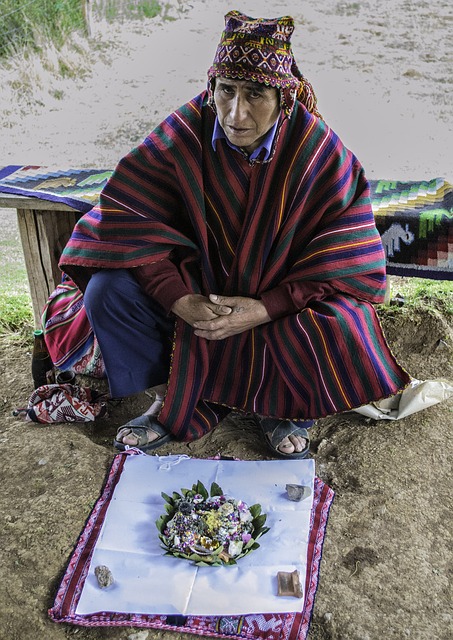 CF writes: "Google keeps sending me this banner for Shamanic healing across the top of my e-mails. Out of curiosity, I went to look at what the newest in "new age" was offering. Can you believe (no pun intended) that the 4th bullet point says that "you won't find anything contrary to to your religious beliefs"...WOW! I bolded the actual bullet...see below. I am so sick of new age being pushed down our throats! I asked Google to stop these banners!"
CF writes: "Google keeps sending me this banner for Shamanic healing across the top of my e-mails. Out of curiosity, I went to look at what the newest in "new age" was offering. Can you believe (no pun intended) that the 4th bullet point says that "you won't find anything contrary to to your religious beliefs"...WOW! I bolded the actual bullet...see below. I am so sick of new age being pushed down our throats! I asked Google to stop these banners!"To fully appreciate what CF is writing about, listen to the promotion that is being trumpeted on the Google banner she references:
"Hello! I am a Shamanic Healing Practitioner who serves the Washington DC metropolitan area. This website contains basic information about me and the service I offer. A few points to get started:
■ Shamanic healing helps people improve their lives
■ Anyone can benefit from a session - you don't need to be in crisis or ill
■ You don't need to believe anything, but an open mind helps
■ You won't find anything contrary to your religious, or non-religious beliefs
■ I am based in Northern Virginia . . ."
It's easy to see how this kind of advertising can lure the unsuspecting to believe they can dabble in what appears to be an innocent and well-intentioned practice. This is especially true today when shamanism is being touted as trendy and hip by the mainstream media. However, the facts about these potentially dangerous practice should not be ignored!
First of all, to say that shamanism isn't contrary to religious beliefs is preposterous. Shamanism is based in the occult! While there are some "religions" out there that think occult practices are okay, the majority of Americans - who are Christian - certainly do not as the occult is antithetical to Christianity. Jesus Christ came into the world to redeem us from the very same forces of evil that occultists rely upon!
For those of you who do not know what shamanism is, this is a belief system which is based in animism - that is, a belief that all created things have a soul and consciousness. Mountains, woods, forests, rivers, and lakes are perceived to possess spirits and to be living, thinking impassioned beings like man. Animists believe the world is pervaded by these spiritual forces that hover about man at all times and are the cause of his mishaps, pains and losses.
Because man is thought to be helpless against these spirits, he relies on the services of a shaman who knows the appropriate words and acts to perform that shield man from harm and envelope him in a kind of protective armor so that the evil spirits become inactive or at least inoffensive.
There are several means by which a shaman controls the spirits. The most common is symbolic magic which is based on the principle that association in thought must involve a similar connection in reality. For instance, placing “magical” fruit-shaped stones in a garden is thought to insure a good crop. To bring about someone’s death, symbolic magic calls for the creation of a doll-like image of the person, then piercing it with sharp instruments.
 Fasting with solitude is another method and is usually accompanied by incantations or mantras, some of which mimic the sounds of nature where the targeted spirit is thought to reside, such as in a growling bear or screeching owl.
Fasting with solitude is another method and is usually accompanied by incantations or mantras, some of which mimic the sounds of nature where the targeted spirit is thought to reside, such as in a growling bear or screeching owl.
Dances and contortions with rattles and drums are also common. The frenzied pace of these dances is meant to invoke an ecstatic state. Some tribes, such as those in South America, use drugs to induce this state.
Possession by a spirit is another device. In some cultures, such as Korea, the shaman is thought to have power over the spirits only because he or she is possessed by a more powerful demon.
“The New Age emphasizes Eastern meditation, energy, earth consciousness, the Higher Self, intuition, natural healing, and transcendent states, sometimes with the aid of hallucinogens. Such concepts and activities were a breeding ground for the new shamanism and its focus on ecstatic states, visions and healing,” writes New Age expert Marcia Montenegro in "The New Age Embraces Shamanism."
Neo-shamanism got a jump start into the culture in the early 60's and 70's with writers such as Carlos Castanedas and Lynne Andrews. Castaneda made millions on books about his travels with a Yaqui Indian named Don Juan Matus. The existence of this Indian has never been verified and many of the claims made by Castanedas were not indicative of Yaqui Indian culture. Andrew's books about a Cree Indian guide were also found lacking when a former live-in companion sued her, claiming her works were based on stories he had written. Her books were also found to be lacking in accuracy, such as when she applied Lakota and Hopi terms to a Cree Indian guide.
The upsurge of interest in Native American spirituality is also part of neo-shamanism. In fact, this area has been so infested with New Age hackers that the Lakota Indian tribe actually issued a declaration of war against New Agers (they refer to them as "plastic shamans") for how they mangle native beliefs for the sake of profit.
I have no doubt that whatever this shaman from northern Virginia is selling, it's not compatible with Christianity and never will be as it entails the worship of the false gods of nature, and employs occult practices such as the invocation of evil spirits and necromancy.
© All Rights Reserved, Living His Life Abundantly®/Women of Grace® http://www.womenofgrace.com
